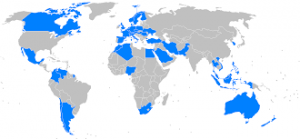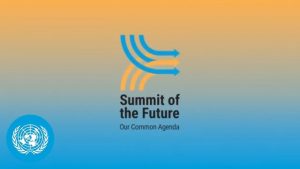
In last week’s Post, with part of the same title as this week’s Post at Alan’s Newsletter, I began an examination into the weakening of multilateralism in the current global order. It is a particularly appropriate time to look at the state of multilateralism, and particularly a focus on the classic ‘Formal’ institution, the United Nations. This is a key week in the life of the UN.
The UN General Assembly is gathering, as pointed to by Nudhara Yusuf from Stimson described to:
So, UNGA79 really stands for the 79th session of the UN General Assembly, which begins on September 10th, 2024 … UNGA79 this time of year though, we’re referring to the wonderfully energized chaos that is about to descend onto 1st, 2nd, and 3rd Ave New York during UNGA High-Level week [emphasis added] when the general debate is opened. This will be on the 24th of September and run through the end of the week. Of course, the key thing on all our minds are the days right before that, with the Summit of the Future Action Days from 20-21 September and the Summit of the Future itself from 22-23 September.
The gathering of heads of government and state at the special UN session is to complete and agree on the following:
Its agreed outcomes of the Pact for the Future and annexed Declaration on Future Generations and Global Digital Compacts should be priority areas for Heads of States in their statements.
Colum Lynch at Devex, examined recent UN developments including the SDG Summit in 2023 and now, at the doorstep, the Summit for the Future in 2024:
The roots of the future summit date back to 2020, when world leaders marked the 75th anniversary of the U.N.’s founding, issuing a declaration asking [Secretary General Antonio] Guterres to outline his vision for a modern multilateralism to better “respond to current and future challenges.” The following year, Guterres issued Our Common Agenda, which maps out a course for the U.N. over the next 25 years.
Many of Guterres’ original proposals — for instance, the creation of a Futures Lab to measure the impact of policies over the long haul and the reform of the trusteeship council established to manage decolonization to advocate on behalf of future generations — were scaled back or scrapped altogether. And there remains persistent skepticism that a decades-long push for the expansion of the U.N. Security Council — to include emerging powers from Asia, Africa, and Latin America that have emerged since World War II — will succeed this time around.
Clearly reform of the UN Security Council (UNSC) is at the absolute heart of urgent reform of the multilateral system. This was made clear with the very recent announcement by the US Ambassador to the UN, Linda Thomas-Greenleaf that added additional US proposed reforms:
- Create 2 permanent seats for Africa in the Council;
- A new elected seat for Small Island Developing States (SIDS); and
- Engaging in tech space negotiations in Council reform
The Pact for the Future, the key outcome document of the SoTF has now gone through 4 deeply negotiated revisions, with the 4th revision released just a few days ago (September 13th). In the first 3 revisions there was no agreed reform text and yet finally in this 4th revision we see at least the articulation of proposed ‘features of reform’ fo this key UN institution:
Action 41. We will reform the UN Security Council, recognizing the urgent need to make it more representative, inclusive, transparent, efficient, effective, democratic and accountable.
69. In response to the growing urgency to increase the effectiveness of the United Nations’ abilities to maintain international peace and security as set out in the UN Charter, we agree on the following guiding principles identified in the Intergovernmental Negotiations on the question of equitable representation on and increase in the membership of the Security Council and other matters related to the Council (IGN) in accordance with decision 62/557 of the General Assembly as parameters for reform:
(a) Redress the historical injustice against Africa as a priority and, while treating Africa as a special case, improve the representation of the underrepresented and unrepresented regions and groups, such as AsiaPacific and Latin America and the Caribbean.
(b) Enlarge the Security Council in order to be more representative of the current UN membership and reflective of the realities of the contemporary world and, taking into account our commitments of Sustainable Development Goal 16.8, increase representation of developing countries and small- and medium-sized states.
(c) Continue discussions on the issue of representation of cross-regional groups, taking into account that Small Island Developing States, Arab States, and others, such as the OIC, have been mentioned in the discussions of the IGN.
(d) Intensify efforts to find an agreement on the question of the categories of membership taking into account the discussions held in the IGN process.
(e) The total number of members of an enlarged Council should ensure a balance between its representativeness and effectiveness.
(f) The working methods should ensure the inclusive, transparent, efficient, effective, democratic and accountable functioning of an enlarged Council. (g) The question of the veto is a key element of Security Council reform. We will intensify efforts to reach an agreement on the future of the veto, including discussions on limiting its scope and use.
(h) As part of a comprehensive reform, the inclusion of a review clause should be considered to ensure that the Security Council continues over time to deliver on its mandate and remains fit for purpose.
As is evident this Action item, 41, does not describe actual agreed changes. For that one needs to turn to Action 42:
Action 42. We will strengthen our efforts in the framework of the Intergovernmental Negotiations on Security Council Reform as a matter of priority and without delay.
70. We support the Member States driven nature of the reform of the Security Council, and will intensify efforts for the reform through the IGN in accordance with General Assembly Decision 62/557 and other relevant resolutions and decisions of the General Assembly, such as resolution 53/30. Building on the recent progress achieved in the IGN, including through more transparency and inclusivity and by enhancing its institutional memory, we decide to:
(a) Encourage the submission of further models and the revision of already presented models by States and Groups of States for the structured dialogues with a view to developing a consolidated model in the future based on convergences on the five clusters, and the models presented by Member States.
It is evident that this Action Item 42 is in UN-speak. I have had to rely on close colleagues much more schooled in the UN than I am. Indeed you can listen to valuable webinar on the subject: of “The UN Summit of the Future: What to Expect”, with several colleagues including Anne-Marie Slaughter CEO of New America and led by close Carnegie Endowment of International Peace (CEIP) colleague, Stewart Patrick. There I learned there will be an Intergovernmental Negotiation that would lead to a consolidated model of reform to ultimately be voted on. My colleagues believed that this was a significant step forward on reform. Looking at it I remain somewhat skeptical but will rely on my knowledgeable friends that something – that reform proposals – will advance at the UN and that reforms are in fact coming.
Finally, I couldn’t end without referencing my Substack colleague’s examination of the impact of the Summit of the Future. So Peter Singer at Global Health Insights recently posted a piece titled: “Will the Summit of the Future lead to a more results-based United Nations?” Peter examines all 60 action items and concludes:
On full display at the Summit is what’s wrong with the UN: a failure to execute on what’s already agreed. In September, the only acronym the UN needs is GSD — Get Sh*t Done. (If you’re a diplomat, feel free to substitute “Stuff.”)
Peter is particularly frustrated over the failure of the Organization and its member states to advance the 2015 agreed Sustainable Development goals (SDGs), what the UN calls Agenda 2030:
The UN suffers from planning disease. Any successful real-world entity does 10% planning and 90% execution (and the planning is built on the results of execution). In the UN, it’s the reverse.
Peter argues that the UN must first develop “better ways to translate data into results.” Then it must: “support countries to scale innovations that are already reaching millions to reach tens or even hundreds of millions of people.” And finally he urges:
It could look at countries that are performing well and those that are not and how the latter could be more like the former. It could examine what the agency is doing to support countries to get on track, and how it could do it better, and how well it is working with other agencies to support countries.
I think the latter point is particularly critical because in the end in this case it is not so much the UN, and the UN agencies that are responsible for achieving the SDGs but the Member countries that will make the SDGs happen – or not. And, unfortunately, it is the Member States that are only too evidently unwilling, or politically and administratively unable to make SDG progress. A too obvious example – the United States. This is a Member State where the SDGs never pass the lips of its leaders and their officials.
The questions surrounding the outcomes and implementation of the SoTF lie as much, or more, ‘at the feet’ of the national governments. It is not a heartwarming view. So, yes, we need to address the inadequacies of the international organizations. Reform and updating is required and little has occurred over the decades. But the heart of the system is states and their capacity and, or willingness to work together to achieve progress. As Sophie Eisentraut declared in her FP article, “Can the West Revive Multilateralism?”:
As world leaders descend on New York for the United Nations Summit of the Future this week, rules-based multilateralism is in a dismal state. Amid the international community’s failure to conclude a global pandemic treaty and the U.N. Security Council’s paralysis in the face of both Russia’s war in Ukraine and the Israel-Hamas conflict, it’s hard to recall the last success of multilateral cooperation.
Among governments, accusations of double standards and broken promises, from delivering COVID-19 vaccines to providing meaningful debt relief, are mounting. Against this backdrop, the summit looks like a desperate attempt to rebuild confidence—particularly among countries in the global south as they navigate a multilateral system that even the U.N. secretary-general describes as caught in “colossal global dysfunction.”
The ‘enduring weakness’ is ultimately laid at the feet of national governments. And from today’s perspective – and on the eve of the Summit of the Future – it is not a very pretty sight.
This Post originally appeared at my Substack Alan’s Newsletter. Comments are welcome as are free subscriptions
https://open.substack.com/pub/globalsummitryproject/p/the-un-summit-of-the-future-and-the?r=bj&utm_campaign=post&utm_medium=web&showWelcomeOnShare=trueImage Credit: YouTube

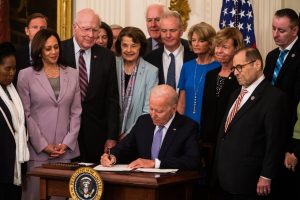
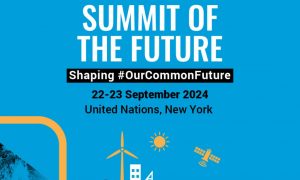
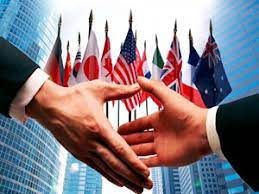

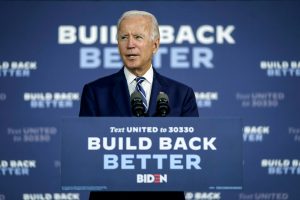
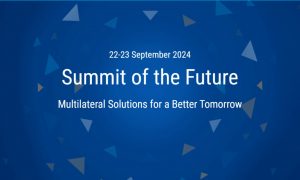 So, we are closing in on the consequential “
So, we are closing in on the consequential “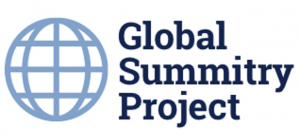 “Advancing global governance and human security for a better future”: A Symposium hosted by the Center for China and Globalization (CCG), America-China Public Affairs Institute (ACPAI) and the China-West Dialogue (CWD)
“Advancing global governance and human security for a better future”: A Symposium hosted by the Center for China and Globalization (CCG), America-China Public Affairs Institute (ACPAI) and the China-West Dialogue (CWD) 